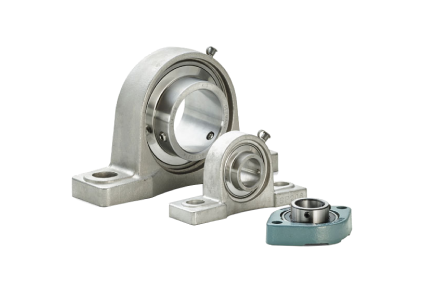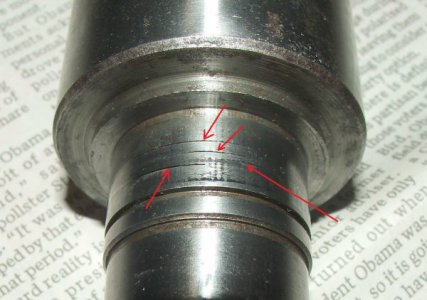How Bearing Seat Wear Impacts Bearings: A Comprehensive Guide
Introduction
Bearing seats are essential components in machinery, providing a stable foundation for bearings to function properly. Made from materials like cast iron or cast steel, these seats ensure that bearings remain securely in place, enabling smooth operation of the entire mechanical system. But what happens when a bearing seat wears down? The effects can be significant, impacting everything from bearing performance to overall equipment efficiency.
In this article, we’ll explore the critical role of bearing seats and the consequences of their wear. By understanding these impacts, you’ll see why regular maintenance is key to keeping your machinery running smoothly. Let’s dive in!
What Is a Bearing Seat and Why Is It Important?

A bearing seat is more than just a holder for bearings—it’s the backbone that ensures your machinery operates efficiently and reliably. Here are the key roles it plays:
-
Supports and Secures Bearings: By providing a stable mounting position, the bearing seat prevents bearings from shifting or loosening during operation. This stability is crucial for the smooth rotation or movement of shafts.
-
Bears Loads: It absorbs various loads—such as radial forces, axial forces, and bending moments—and distributes them evenly. This reduces stress on the bearings and shafts, extending their lifespan.
-
Ensures Precise Positioning: With its carefully designed structure and dimensions, the bearing seat maintains the correct position and angle of the bearings. This precision is vital for the stability and accuracy of the machine.
-
Reduces Vibration and Noise: By absorbing vibrations and shocks, the bearing seat minimizes noise and protects the bearings and other components from damage.
-
Allows for Adjustments: When bearings wear out or deform, the bearing seat can be adjusted to restore the machine’s performance, prolonging its operational life.
-
Seals and Protects: Some bearing seats come with sealing structures that keep out dust, water, and debris, ensuring the bearings stay lubricated and functional.
In short, the bearing seat is a silent hero in mechanical systems, ensuring everything runs smoothly and efficiently. But when it starts to wear down, the consequences can be far-reaching.
The Effects of Bearing Seat Wear on Bearings
Bearing seats can wear out due to repeated disassembly, bearing failures, or plastic deformation (like becoming oval or tapered). This wear doesn’t just affect the seat itself—it can have serious repercussions for the bearings and the entire machine. Let’s explore the main impacts:
Reduced Bearing Performance and Lifespan
-
Decreased Fit Precision: As the bearing seat wears, the gap between the seat and the bearing widens. This causes the bearing to move or vibrate excessively during operation, disrupting its normal function. Have you ever noticed a machine running louder or less smoothly? This could be a sign of bearing seat wear.
-
Accelerated Bearing Wear: The increased movement and vibration lead to higher friction and impact forces on the bearing. Over time, this can cause the bearing to wear out faster or even develop cracks and fractures.

Lower Equipment Efficiency
-
Higher Energy Consumption: A worn bearing seat increases friction, forcing the machine to work harder to overcome resistance. This means more energy is consumed, driving up operational costs.
-
Increased Vibration and Noise: Without stable support, the bearing generates abnormal vibrations and noise. Not only is this disruptive, but it can also damage other parts of the machine.
Compromised Precision and Stability
-
Loss of Positioning Accuracy: In precision equipment like CNC machines or measuring instruments, even slight wear in the bearing seat can shift the bearing’s position. This leads to errors in machining or measurements, affecting the quality of your work.
-
Decreased Stability: A worn bearing seat can cause the machine to wobble or shift during operation. For high-speed or high-stability equipment, this instability can pose serious safety risks. Could your equipment be at risk? Regular checks can help you avoid these issues.
Increased Maintenance Costs
-
Frequent Repairs and Replacements: To keep the machine running, you’ll need to repair or replace worn bearing seats more often. This not only increases maintenance costs but also leads to downtime, which can disrupt production schedules.
-
Production Delays: Every time the machine is down for repairs, your production timeline takes a hit. This can result in missed deadlines and financial losses.
Why Monitoring Bearing Seat Wear Is Crucial
As we’ve seen, bearing seat wear can have a domino effect on your machinery—impacting performance, efficiency, and even safety. By keeping a close eye on the condition of your bearing seats, you can:
-
Extend the lifespan of your bearings and other components.
-
Maintain high precision and stability in your operations.
-
Reduce energy consumption and operational costs.
-
Minimize downtime and keep production on track.
So, what’s the takeaway? Regular inspection and timely maintenance of bearing seats are essential for optimizing performance and avoiding costly repairs. By addressing wear early, you’ll not only save money but also ensure your equipment runs smoothly for years to come.
Final Thoughts
Bearing seats may seem like small components, but their role in mechanical systems is immense. From supporting bearings to ensuring precision and stability, they are vital to the smooth operation of your machinery. However, when wear sets in, the effects can be detrimental—leading to reduced efficiency, higher costs, and even safety risks.
If you still have issues with your bearing housing or need to purchase bearings, feel free to contact us! TFL Bearings offer professional consulting services and high-quality bearing-related products.
